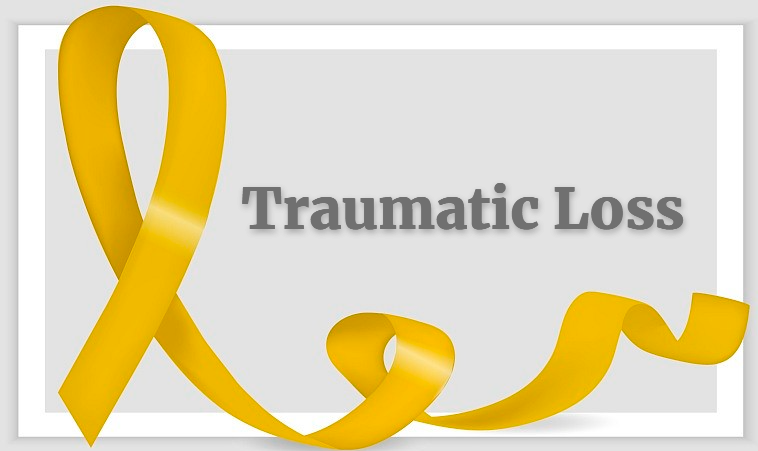January 16, 2025
Finding Hope After Traumatic Loss

Although any death of a loved one can be emotionally devastating, unexpected deaths result in especially strong responses. One study concluded the unexpected, or traumatic, death of a loved one is associated with depression and anxiety, alcohol use disorders and a heightened risk for prolonged grief.
Brittany Roozeboom says the traumatic loss of her ex-partner by suicide upended her life, but she is beginning to put her life back together after reaching out for help.
Brittany and her ex-partner had a tumultuous relationship, and his addiction and mental health struggles ultimately led to their breakup. “We were done and I thought everything was going fine for him. He had the ideal position at his job. He had just gotten a new car and a new apartment. We still talked and he communicated that he was happy where he was. So, when I got the phone call telling me that he had died by suicide, it didn't make sense and it was really hard.”
The death triggered a debilitating spiral of deep depression and an inability to function personally or as a mother. Brittany struggled with parenting and guardianship issues for several years as she wrestled with her grief.
At EveryStep, every interaction is approached with empathy and understanding, recognizing the unique needs of each individual. Everyone’s personal journey is honored and respected.
In 2024, Brittany reached out to EveryStep Grief Services’ Amanda the Panda program for help, and she and her daughter began attending the program’s traumatic loss group.
Brittany says attending the first session of EveryStep’s traumatic loss group was comforting, but also hard, as she had to relive her pain and hear about the pain others were in. Still, being with people who understood what she was experiencing helped her work through her grief. “I just find it helpful to be in a room with people that have been through similar experiences. Whether it’s suicide specifically or another kind of traumatic loss, it’s just different from regular loss. Not that it’s easier, it’s just different.”
Brittany also appreciates the dinners provided by EveryStep volunteers. “It’s a huge, huge benefit. It gives me one less thing to worry about, especially with all my kids. Taking dinner out of my responsibility is very helpful.”
Some people find the support and guidance they need from just one session of EveryStep Grief & Loss support groups; others, like Brittany, appreciate that they can attend multiple sessions, if desired. “There's still stuff that's unresolved within me that I need to deal with. And it seems like every cycle I open up a little bit more, and I realize, understand and accept a little bit more.”
Brittany says this has also been helpful for her daughter, age 8. “I can say that while we have sessions, she seems to handle his passing better. It's just less difficult for her when she's going to Amanda the Panda.”
Looking back at her life, Brittany says she is determined to stay on the positive path she is on. “I have no choice but to have good days ahead, because I’m done with all that. I will never, never, ever go through that again.”
EveryStep believes in providing exceptional care and support when it matters most. Every individual is treated with the utmost dignity and every moment is met with respect, sensitivity and unwavering support. With empathy at the core, each interaction is taken with thoughtfulness, ensuring that the care and support offered is as empathetic as it is effective.
The next traumatic loss grief support group begins in March and registration opens February 1 using this link. For more information about all of EveryStep’s Grief & Loss Services’ programs, click here. If you or someone you know is struggling to find the support they need, please contact EveryStep at 515-558-9946 or complete the commitment-free, confidential “Find Care” form. EveryStep staff will follow up with a phone call to answer your questions and help.